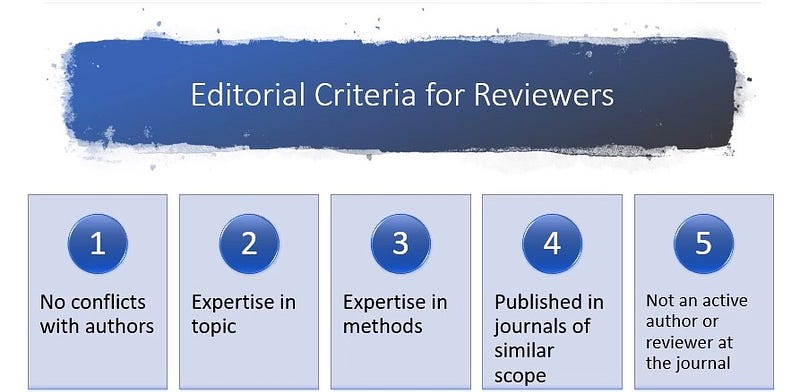Navigating the Peer Review Process: Tips for Suggesting Reviewers
Written on
Chapter 1: Understanding Peer Review Selection
The process of selecting the right peer reviewer can often seem elusive in the realm of academic publishing. It is crucial for researchers to grasp the methods editors employ in choosing reviewers, which largely revolves around identifying and mitigating conflicts of interest.
Think of it as a game of dodgeball; editors have a pool of potential reviewers equipped with the requisite expertise. However, they systematically eliminate candidates based on existing conflicts with the authors. Those who remain after the "conflict balls" are the ones invited to conduct thorough reviews.

Choosing reviewers involves careful consideration of individuals who are free from any conflicts or perceived conflicts of interest. A simple marking system can be employed: "X" indicates a conflict, while a check signifies that the individual is suitable for review.
When the term "conflict of interest" is mentioned, many immediately think of financial entanglements. Researchers are familiar with this type of conflict, as they must disclose such information when submitting their papers. If a study is funded by a company, or if authors are employed by a company where a potential reviewer has a financial stake, that reviewer is deemed unsuitable for an in-depth review. Editors often investigate Scientific Advisory Boards and Executive Boards to avoid potential conflicts.
Less obvious conflicts also exist and can lead to inappropriate reviewer suggestions. Such conflicts include relationships that authors might overlook, such as:
- Co-authors on past papers
- Current or former co-grantees
- Colleagues at the same institution, particularly within the same department
- Current or previous labmates
- Mentors and mentees
- Family members or personal friends
While it is advisable to steer clear of any co-authorship ties with study authors, this can be difficult to navigate. The "Committee on Publication Ethics" suggests a three-year period during which no co-authorship should exist between the reviewer and any of the study's authors.
It's essential to view these as guidelines rather than strict rules. In smaller fields or niche studies, conflicts may be unavoidable. Therefore, it becomes critical for editors to exercise their judgment, weighing the nature and frequency of co-authorship when considering potential reviewers.
The Ideal Peer Reviewer
An ideal peer reviewer should possess expertise relevant to the study. However, it is not uncommon for a reviewer to have proficiency in only specific aspects of a paper, which is particularly true for interdisciplinary research that often necessitates multiple reviewers.
Editors seek reviewers with the depth of knowledge necessary to assess the quality of the research and evaluate the study against the journal's standards for novelty and impact. They consider not only the potential reviewer's publication history but also their experience with similar journals and readership.
Another key factor is whether the reviewer is currently contributing to the journal, either as an author or reviewer for another submission. This situation can lead to conflicts due to time constraints and the potential for overlapping content, which might affect the reviewer's objectivity.

For a brief overview of who to suggest as a reviewer and who to avoid, check out the following video:
Recommending Reviewers
This concise video delves into the conflicts considered by editors and outlines how they identify appropriate reviewers for submissions.